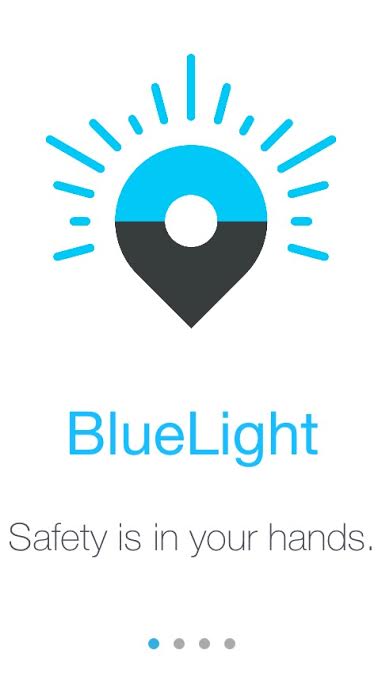By Mack Hogan, news correspondent
BlueLight, an app that allows users to contact emergency services and provides exact location details, recently added a service that allows people on campus to contact university police when dialing for help.
The service allows users to share their location with friends and family, contact authorities and alert contacts in the event of an emergency.
The app takes its name from Blue Light phones. Scattered around hundreds of college campuses in the US, these phones give students an instant connection to campus police. They are placed so that students on campus are always close to one of the phones. However, the new app brings this technology to students’ pockets.
“If you call 911 normally, you may not get the nearest dispatcher – you may be on campus and get through to local police, and then you have to explain your location, all of which wastes time when you have an emergency,” Cecilia Marshall, a BlueLight marketing representative, said.
The app allows students to connect with emergency services with the push of a button. The app, using GPS, determines whether or not the user is on a college campus. If they are, the app routes the call directly to the campus police instead of 911, which, the app’s description claims, cuts response time.
“Preet Anan, the founder of the app, went to a conference in high school where he was told that one in five women are sexually assaulted while in college,” Marshall said. “He decided that needed to change.”
The app is his attempt at improving the statistics and providing a safe way for students to move around campus – for a price.
Unlike the BlueLight phones, there is a fee for using the app. The regular subscription price is $19.99 per year, but students can receive the full suite of services for $9.99 per year, according to the company’s website.
In addition to the typical services, the BlueLight app, available for iPhone and Android, allows users to share their location in real time with friends and family, using a feature called On My Way. Friends and family can follow app users’ progress via a web link and alert emergency services if they do not arrive as expected.
Users can also choose to automatically notify close friends or family if an emergency call is placed. As the system dials emergency services, it texts their emergency contacts that a call has been placed.
The app provides an alternative to NUPD’s escort service, which dispatches an officer to walk students home safely. The location services help to ensure that someone is safe, and any suspicious activity can be quickly reported regardless of location.
“I had to walk through Ruggles last night at 3 a.m. It was terrifying, but I didn’t want to wait around for an NUPD escort,” Grace Peck, a freshman mechanical engineering major, said.
In the future, students can use the app to stay safe without having to find a Blue Light phone and wait for the police.
BlueLight adds new universities by indexing all of the buildings on campus, allowing the app to send clear instructions to the police. Users can also add locations that they frequently go to that the app can send to police.
“If you’re in an apartment, for example, you can save the number so that police not only know the building, but exactly where to go in the building when you place a call,” Marshall said.
The Northeastern University Police Department is not working with BlueLight specifically, but is working with similar apps.
“The most significant of these technologies is SafeZone, by Critical Arc,” Officer Ruben Galindo, deputy chief of the NUPD, said in an email to The News. “We are not using [the] BlueLight app.”
SafeZone provides similar protection to BlueLight, but does not offer the On My Way features of BlueLight. SafeZone also only covers the campus, as defined by the NUPD, whereas BlueLight will connect users to Boston emergency services if the app sees that the user is off campus.
SafeZone is available free for all Northeastern students.
“It’s following the trend of making everything into an app – I think Northeastern has about 14 right now – but in this case, I think it’s a good thing to make the service as accessible as possible,” Koissi Adjorlolo, a freshman computer science major, said of BlueLight.
Photo by Elise Harmon









